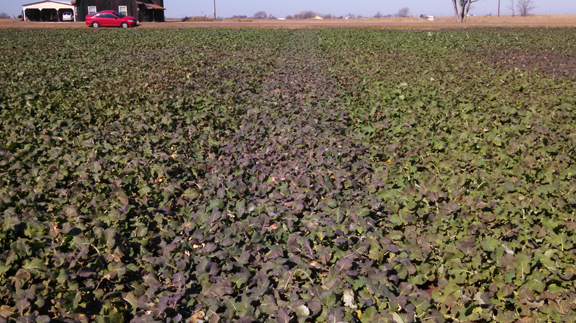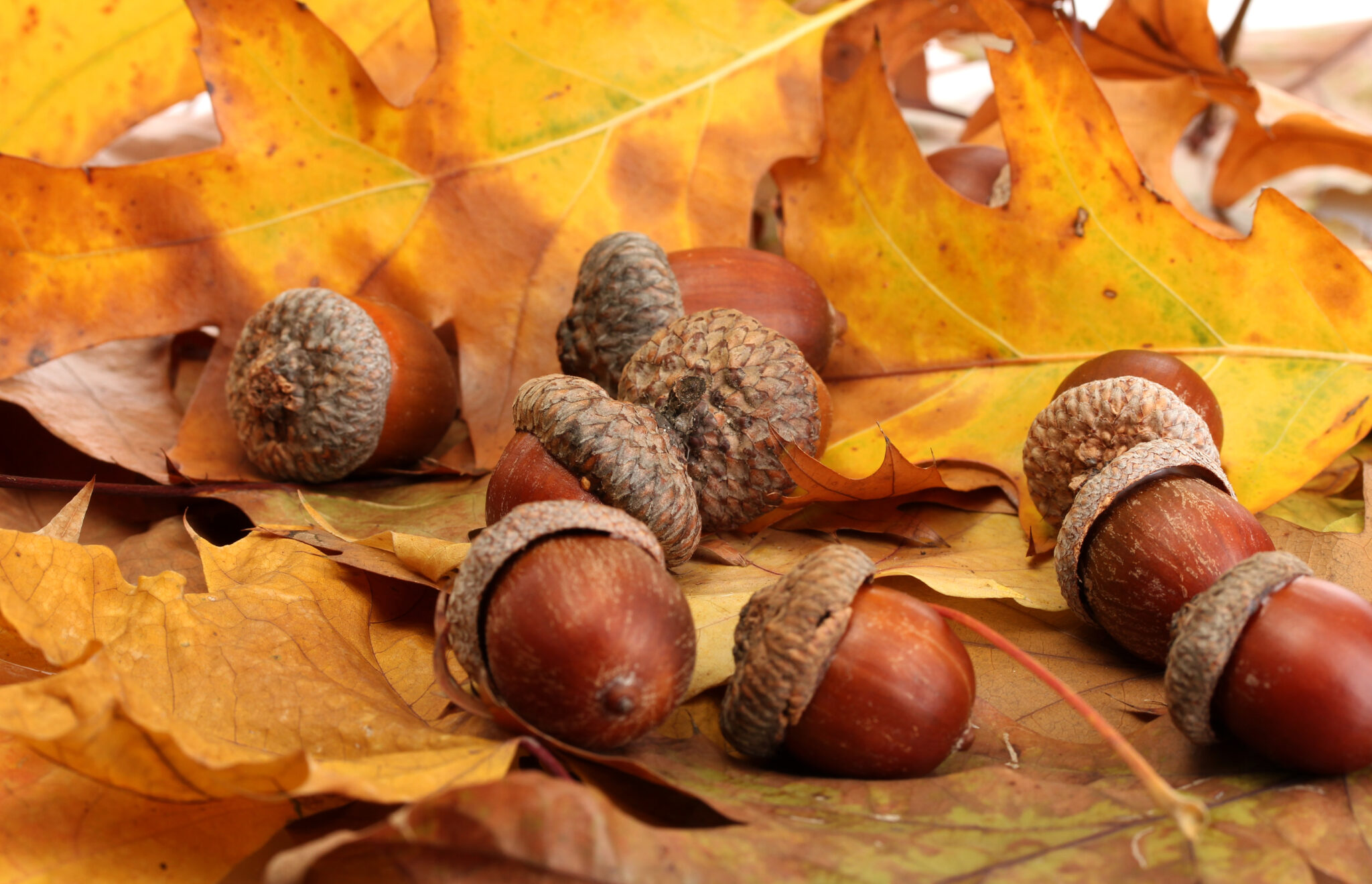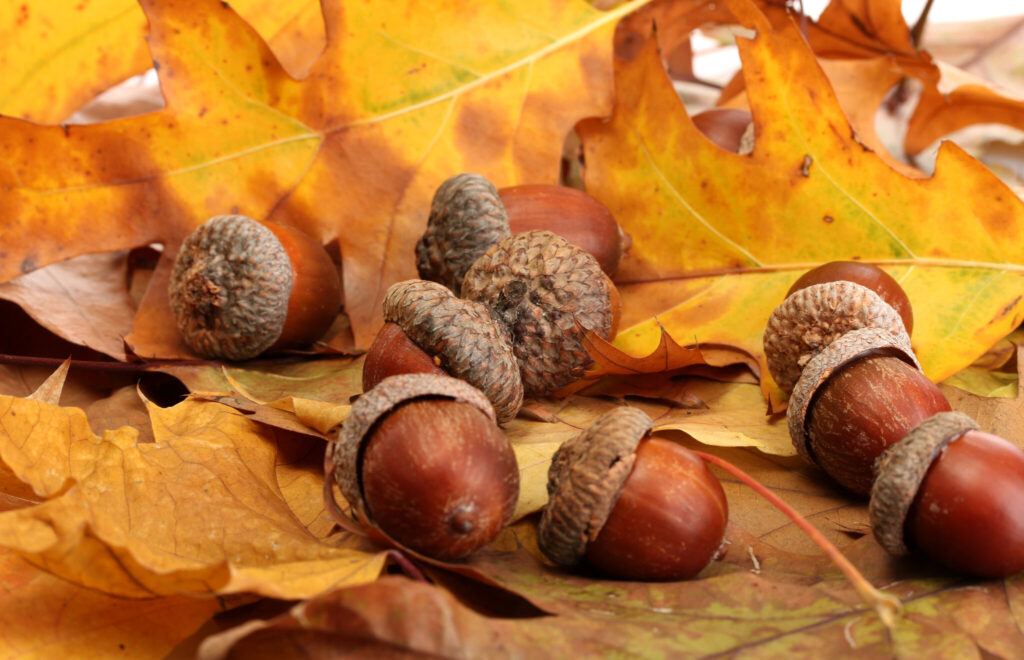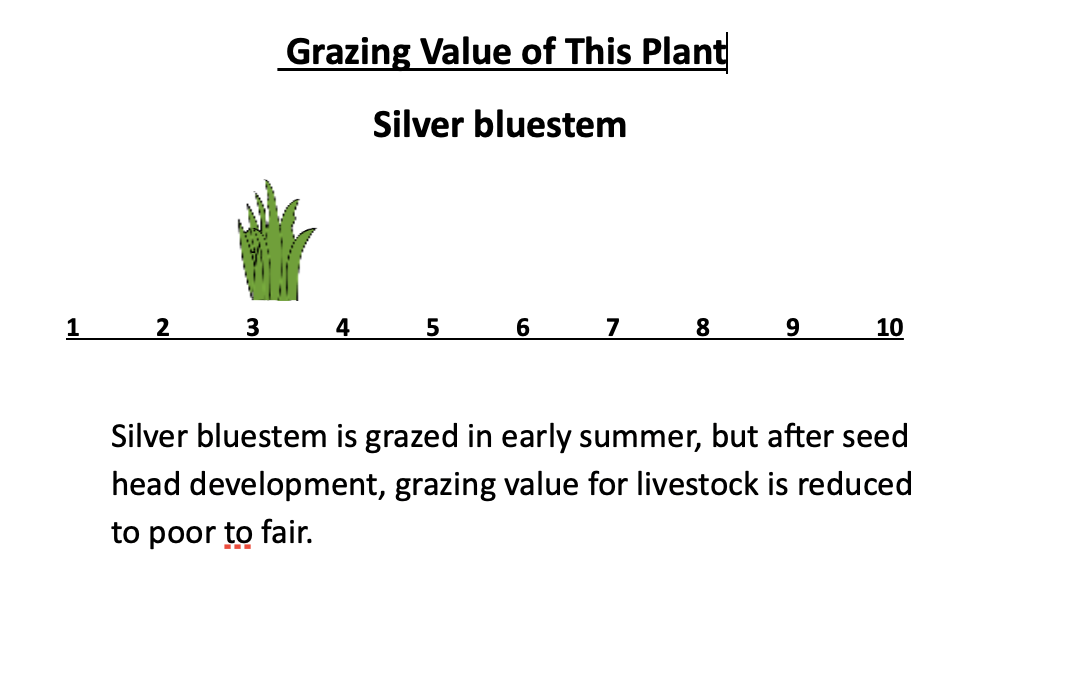Farm & Ranch
Texas crop, weather for Feb. 3, 2015

By: Robert Burns
Writer: Robert Burns, 903-834-6191, [email protected]
COLLEGE STATION – Thanks to good fall and spring rains throughout much of the state, most winter wheat and other small grains and cool-season oilseed crops like canola are in good shape, according to a Texas A&M AgriLife Extension Service agronomist.
“I’m pleased to report that we are sitting on a pretty good crop right now,” said
Dr. Clark Neely, AgriLife Extension small grains and oilseed specialist, College Station.
Wheat was in considerably better condition for this time of year compared to last year, he said.
Download or preview a two-minute MP3 audio version of this report
“Some stripe and leaf rust have been reported in winter wheat fields across the state, so inoculum (spores) is already present if weather conditions are favorable for rust development this spring,” Neely noted.
The favorable outlook goes for most wheat and small grains, but particularly for canola, he said.
“You can never tell 100 percent, because last year we had pretty good fall moisture at about this time, and then the water shut off, and then we had a really dry spring,” Neely said. “We continued to get fall moisture longer at this time, and more moisture in the Panhandle and Rolling Plains. They still need more moisture, but they’ve had sufficient moisture to keep the crop going and give a little bit of soil profile recharge.”
The Farm Service Agency has more than 20,000 acres of canola insured in Texas for the current crop, which is the highest acreage recorded in the past six to seven years, according to Neely.
Most Texas canola is grown in the Rolling Plains region because there is a market for it at the Producers Co-op in Oklahoma City, he said. Much of the canola grown in the Southern High Plains goes there.
“Also, ADM now has an upgraded crushing facility in Lubbock that accepts canola in addition to cottonseed,” he said. “So now we have an alternate endpoint for producers to take canola in Texas.”
Canola promises a good profit for producers, though it does require higher input and management than wheat, he said. The other advantage of canola is that it makes a great rotational crop with wheat.
“We really don’t have other options for a cool-season rotational crops with wheat,” Neely said. “It’s a broadleaf crop, so it’s handy to break up disease and insect cycles. And there are even Roundup-Ready varieties.”
AgriLife Extension district reporters compiled the following summaries:
The 12 Texas A&M AgriLife Extension Districts
Central: All counties had good soil moisture. Rangeland, pasture and livestock were also generally rated as good or better throughout the region. All cotton was harvested, while the pecan harvest continued. Small grains were generally in good condition. Oats and wheat were growing well, and producers started topdressing crops with fertilizer. Some wheat was stressed by heavy rains. Certain varieties were showing more stress than others. Livestock were in good to fair condition with producers still feeding hay. Some fields were too wet to work, but sunny days dried things out somewhat. Stock water tanks were full.
Coastal Bend: Increased rain improved moisture levels and pastures. Most pastures still had standing water or were saturated, but showed signs of drying. The wet field conditions continued to hinder fieldwork. Livestock were being fed hay and protein. Warmer temperatures and sunny days helped improve clover and winter pastures. Hay and forage producers were applying lime. Some producers were involved in gopher control in hay pastures. Many winter oat pastures were being grazed out. Soil moisture was deemed adequate for spring planting. Most cattle were in good condition for this time of year.
East: The region received abundant rain, and pastures and fields were saturated. Most counties were still reporting a surplus of topsoil and subsoil moisture. The area had abnormally warm weather during the week, and winter pastures responded accordingly. Some producers were topdressing winter pastures with fertilizer. Trinity County reported fat cattle were dying of pneumonia due to weather vacillating between warmer than normal and colder than usual. The animals were showing no other signs of illness and autopsies had to be done to determine the cause. Access to pastures was difficult due to the soggy conditions, and producers were feeding large amounts of hay. The spring calving season continued. Some producers turned out bulls for breeding season. Livestock were in fair to good condition with supplemental feeding. Weaning and selling of market ready calves continued. Cattle markets were down a little. Some growers were pr uning fruit trees; others were planting onions, and preparing to plant spring potatoes. Cherokee County reported feral hogs were destroying winter forages.
Far West: Most counties reported small amounts of precipitation and mostly good conditions for fieldwork. Topsoil moisture was mostly adequate, while subsoil moisture was short. Pastures and rangelands were mostly in fair to poor condition. Upland cotton and pecans were completely harvested. Reeves County oats were mostly in good condition. Winter wheat was 50 to 100 percent emerged and mostly in fair to poor condition.
North: Topsoil moisture was mostly adequate with some counties showing a surplus. As much as 0.5 inch of rain was received early in the week. Temperatures varied from highs in the mid-70s to lows of about 30 degrees. Winter pastures were wet, and producers had to keep livestock off them in some areas. Supplemental feeding of hay was heavy where grazing had to be restricted. Sunny and windy days later in the week helped to dry out the topsoil of winter-annual pastures. Warm weather over the last few weeks caused many flowering plants to bloom and fruit trees to bud out. Ryegrass began to come out of dormancy and start active growth. Livestock were in good condition. Wild hogs caused a lot of damage.
Panhandle: Temperatures were again up and down for the week. Soil moisture varied from very short to adequate, with most reporting short to adequate. Some moisture was received midweek and again near the weekend in the form of snow, sleet and rain throughout most of the region. Parts of Collingsworth County received as much as 3/4 of an inch of moisture. Weather conditions have kept Deaf Smith County producers out of the field and delayed the finish of the cotton crop. The recent snow and rain gave dryland wheat a new life. There were, however, reports of greenbugs. Dallam and Hartley counties had warmer open weather, melting the snowpack. Moisture from recent snows was very beneficial but more is needed to benefit deep soil moisture. There was no field activity due to wet conditions. Many farmers were busy with completing necessary paperwork with the Farm Service Agency on the new farm bill. Ranchers were supplementing co ws and preparing hay stocks between weather events. Feedlots dried out some, but were still pretty muddy in places. Rangeland and pastures varied from poor to fair condition with most counties reporting good to fair.
Rolling Plains: Weather went from one extreme to the other, but farmers were finally able to get all the harvestable cotton out of the fields after weeks of wet weather. This year’s cotton looked better than the previous four years. However, three of those four years were drought-stricken. Livestock were in good shape as winter wheat perked up enough after recent precipitation to provide grazing. Warmer weather was also a factor in spurring wheat to really come on. Pastures and rangeland were in fair condition. Producers were hoping the wet weather would continue through the spring.
South: In the northern part of the region, conditions were good, allowing potato planting to continue, and spring wheat and oats planting to be completed. In La Salle County, with the help of sunshine, standing water in roads from rain the previous week dried up, and range and pastures greened up. Grazing for livestock remained fair with steady supplemental feeding continuing. Cattle body condition scores remained fair. Overall, soil moisture conditions remained 30 to 100 percent adequate. In the eastern part of the region, producers and ranchers continued supplemental feeding of livestock and wildlife. Growers in Kleberg and Kenedy counties worked on field preparations for cotton and grain planting. Spring planting should begin sometime around Feb. 15 if soil temperatures remain warm. Soil temperatures were 60 to 70 percent adequate in Brooks County, 50 percent adequate in Duval and Jim Hogg counties, 100 percent adequate in Jim Wells County and 80 percent adequate in Kleberg and Kenedy counties. In the western part of the region, spinach producers were harvesting both processing and fresh spinach varieties as fields dried out. Onions and carrots progressed well without irrigation. Dryland wheat and oat producers reported good to excellent crop conditions. Excellent forage in some areas kept supplemental feeding of livestock minimal. Soil moisture was mostly adequate, except for Zapata County, where soil moisture conditions continued to be 80 percent short. In the southern part of the region, preparations for spring planting were in full swing. Tomato harvesting was completed, while winter vegetable and citrus harvesting continued. Sugarcane harvesting was halted due to wet fields. Planting of spring crops was still not possible due to wet field conditions in some areas. Soil moisture was 100 percent adequate in Cameron and Hidalgo Counties, 70 to 85 percent surplus in Willacy County and 60 to 80 percent short in Starr County.
South Plains: Rain throughout the region ranged from 0.5 to 0.75 inch. Temperatures remained warm. The winter precipitation helped winter wheat come along. With minor exceptions, all crops were harvested, and producers moved on to preparing fields for spring planting. Rangeland and pastures were in good condition for this time of the year. Garza County livestock producers were only providing supplemental feeding on cold wet days, while Swisher County producers were having to feed nearly every day. Cattle were mostly in good condition.
Southeast: Brazoria County pastures and fields were drying out, but many row crop farmers continue to be behind in planting. In Chambers County, sunny days promoted ryegrass growth. More warm weather is needed to initiate adequate plant growth. In Waller County, the week started off cool and wet, but ended with warmer weather and scattered rain. Brazos County had heavy rains, leaving water standing in low areas. Temperatures remained mild. Soil moisture was mostly adequate to surplus. Brazos, Hardin and Walker Counties reported 100 percent surplus moisture. Rangeland and pasture ratings varied widely, mostly from excellent to good, with fair ratings being the most common.
Southwest: Pastures were in relatively good shape. Winter grasses were responding well after recent rains. Small grains were being grazed short, and some producers were waiting for warmer weather for the crops to regrow. Field fertilization and preparations for corn and grain sorghum planting was ongoing. Supplemental feeding of livestock slowed.
West Central: Temperatures were warm early in the week, but turned cooler with rain late in the week. January moisture totals were above average. All areas needed more rain to fill low stock tanks and ponds. Subsoil and topsoil moisture levels were very good. Recent rains and warmer temperatures helped wheat, oats and pastureland in many areas. There was no fieldwork due to wet conditions. Rangeland and pastures were in very good condition with lots of winter grasses available for grazing. Cool-season weeds were abundant just about everywhere. Rainfall and warmer temperatures put winter forages in good shape. Livestock remained in fair to good condition. Supplemental feeding continued. The pecan harvest was nearly complete.
-30-
Farm & Ranch
Acorn Toxicity

By Barry Whitworth, DVM, MPH
With the prolonged drought, most pastures in Oklahoma end up in poor condition. With the lack of available forage, animals may go in search of alternative foods.
If oak trees are in the pastures, acorns may be a favorite meal for some livestock in the fall. This may result in oak poisoning.
Oak leaves, twigs, buds, and acorns may be toxic to some animals when consumed.
To read more, pick up a copy of the November edition of North Texas Farm & Ranch magazine, available digitally and in print. To subscribe by mail, call 940-872-5922.

Farm & Ranch
Silver Bluestems

By: Tony Dean
There are a handful of grasses on North Texas grazing lands ranchers need to know, not because they are highly desirable, but rather because they are not of much value. I call them “decom” plants, which is am acronym for “Don’t Ever Count On Me.” Silver bluestem is a “decom” grass.
Silver bluestem is a perennial which grows in all areas of Texas. It can survive in almost all soil types, and in full sun conditions or in semi shade. It grows up to three feet tall and is easily recognized with the presence of the white fuzzy seed head. Also, one of the identifying characteristics of Silver bluestem is a bend in the stems at each node, causing the plants to take on a rounded shape as they mature.
To read more, pick up a copy of the November edition of North Texas Farm & Ranch magazine, available digitally and in print. To subscribe by mail, call 940-872-5922.

Farm & Ranch
Meanwhile Back At The Ranch

By: Rayford Pullen
Fall is here which means winter is closing in on us and before we officially get into winter, we need to make sure our factories are either producing or will be producing in a few months.
We have been pregnancy testing our cows this fall and if they are not bred or nursing a calf, we are bidding them adios. With annual costs somewhere between $900.00 and $1,000.00 per cow, those cows not producing a live weaned calf are costing us quite a bit.
To read more, pick up a copy of the November edition of North Texas Farm & Ranch magazine, available digitally and in print. To subscribe by mail, call 940-872-5922.
-

 Country Lifestyles2 years ago
Country Lifestyles2 years agoScott & Stacey Schumacher: A Growth Mindset
-

 Country Lifestyles8 years ago
Country Lifestyles8 years agoStyle Your Profile – What your style cowboy hat says about you and new trends in 2017
-

 HOME8 years ago
HOME8 years agoGrazing North Texas – Wilman Lovegrass
-

 Equine1 year ago
Equine1 year agoThe Will to Win
-

 Country Lifestyles5 years ago
Country Lifestyles5 years agoAmber Crawford, Breakaway Roper
-

 Outdoor9 years ago
Outdoor9 years agoButtercup or Primrose?
-

 Country Lifestyles8 years ago
Country Lifestyles8 years agoJune 2016 Profile – The man behind the mic: Bob Tallman
-

 Country Lifestyles8 years ago
Country Lifestyles8 years agoDecember 2016 Profile, Rusty Riddle – The Riddle Way




